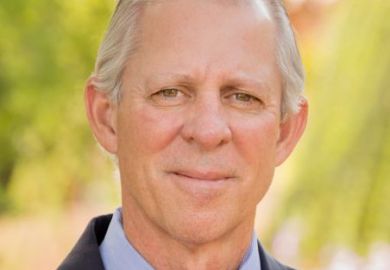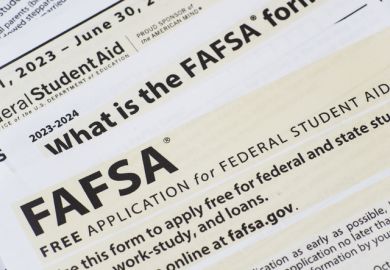Johns Hopkins University, the US’ biggest recipient of federal science funds, lost track of hundreds of millions of dollars in its medical school budget, reportedly forcing it to claw back money from the research accounts of its own faculty.
Hopkins, with a $9 billion (£7 billion) annual operating budget, has led US higher education research spending for 44 straight years, mainly driven by its medical operations. It discovered the discrepancy of about $1 billion between what it thought it had in its School of Medicine accounts and what it actually had during an “accounting modernisation project” running over the past two years, a senior leader said.
“All School of Medicine funds were and are accounted for, and the school is on strong financial footing, following a reconciliation of all internal accounts that began in 2022 and was concluded and communicated to faculty in 2023,” Kim Hoppe, vice-president for communications at Johns Hopkins Medicine, told Times Higher Education.
“The internal reconciliation did not impact, in any way, the university’s externally reported financials. But there was some internal clean-up work to do.”
Hopkins officials said that while deficits valued at close to $1 billion were found in some accounts, others were in surplus, but the value of these was not stated.
One faculty member closely tracking the situation, François Furstenberg, a Hopkins professor of history long active in campus politics, claimed that the corrective action had included taking money from individual laboratory accounts. “This money started getting snatched away by the medical school, and faculty started screaming and yelling,” Professor Furstenberg said.
The revelation comes in an atmosphere of financial stress across US higher education, even at some large and top-ranked institutions. One of the most stunning cases involved the University of Arizona, which announced late last year that it had discovered an unexpected shortfall in its accounts in the range of $200 million because of higher-than-expected spending in sports and student financial aid.
Arizona’s surprise shortfall led it to cut student aid, freeze hiring and remove its chief financial officer. After a faculty vote of no confidence, Arizona’s president, Robert Robbins, resigned.
Hopkins has an overall budget about three times larger than Arizona’s, and is giving no indication of a similar sense of crisis. Hopkins and its healthcare system, however, committed $900 million over several years to help the medical school cope with the situation, Ms Hoppe said. Departments within the medical school also “reallocated funding as needed to assist with the reconciliation”, she said.
Ms Hoppe said that the accounting discrepancies cast no suspicion on anyone, and other Hopkins officials said nobody suffered any punitive action. “We can confirm that there was no shortfall, no miscalculation of funds, and no malfeasance or wrongdoing,” she said.
She described the shifts in individual faculty research accounts as a process in which Hopkins “reallocated funding as needed to assist with the reconciliation”. All such transfers complied with all restrictions required by donors, she said. Hopkins officials said that faculty were given chances to appeal if they felt any funding was improperly taken from their control.
“The School of Medicine put guidelines in place to avoid using faculty-controlled funds and to ensure all restricted funds – such as philanthropic funds and research grants – followed donor intent and grant requirements, and the school created a review process so that faculty could raise questions or provide more information. Quite a few faculty did so, and their partnership helped the school to complete the work last year,” Ms Hoppe said.
The discovery of the discrepancy was the result of a major “financial transformation initiative” that Hopkins began in 2022 to adopt a variety of best practices in budgeting and accounting, Ms Hoppe said. Many other US universities have made similar efforts, she said.
Business expert Rick Staisloff, the founder and senior partner of RPK Group, said he agreed that such deep financial examinations are becoming common in the US, in part to help institutions “identify existing resources that are not currently being used”.
And as part of that, Mr Staisloff said, faculty may find new attention on budgetary reserves that otherwise may have escaped attention. “Bottom line: if unrestricted funds are available,” he said, “institutional leadership will increasingly sweep them up for strategic reallocation.”
Register to continue
Why register?
- Registration is free and only takes a moment
- Once registered, you can read 3 articles a month
- Sign up for our newsletter
Subscribe
Or subscribe for unlimited access to:
- Unlimited access to news, views, insights & reviews
- Digital editions
- Digital access to THE’s university and college rankings analysis
Already registered or a current subscriber?








